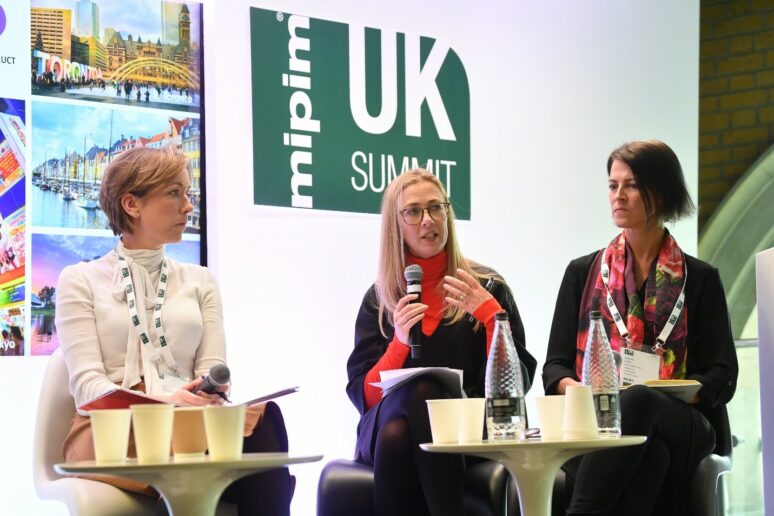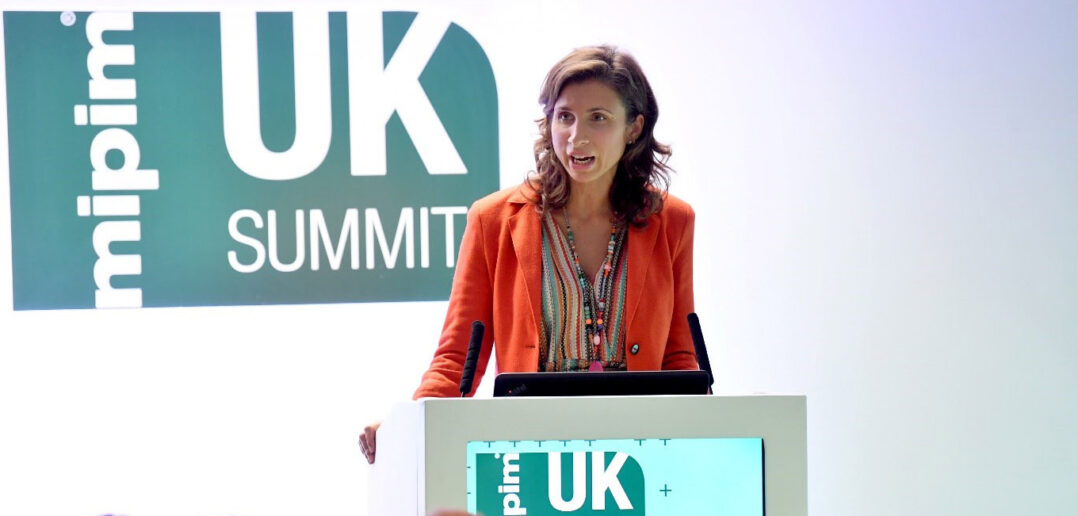Day 1: Real estate diversity challenges, developments and opportunities
This session was dedicated to discussing how real estate diversity in relation to gender, the disabled and the LGBT community might be improved. It asked; what needs to be done to make the sector better reflect the broader society? And how do we commercialise diversity to ensure business advantage as well?
Our discussion was led by Chantal Clavier, Head of Real Estate, Europe & Africa, CEO & Board practice member, Heidrick & Struggles, who opened the event with some powerful statistics; “It’s proven that diverse workforce measurements improve decision making… Across sectors only 29% of board positions are held by women”. Chantal also stated that “the biggest problem seems to be figuring out unconscious bias that hinders progress… Our sector is changing but how much and how fast is another matter”.
For Emma Winning, General Counsel (Governance and Legal) at Argent LLP, “diversity is about diversity of thought… If we have people from diverse backgrounds then you get that diversity of thought and inclusion”. She also highlighted “we are a developer in a diverse global city and if we’re not diverse ourselves then we can’t be the best developer/placemaker we can be.”
Vivienne King, Chair, Real Estate Balance spoke of her own work stating “based in Soho we, by nature, have a very unique & diverse workforce but the same can’t be said for the real estate industry at large which is why we set up Real Estate Balance… to tackle the lack of women in senior real estate positions”. She explained, “we help build confidence for women who are rising up to senior level – we provide practical tools, ideas, examples and initiatives for other companies to use…There are no competitive barriers for wanting to improve diversity in real estate.”
Skills and development for the next generation: a young leaders showcase
Led by Mark Hilton, Executive Director, Policy and London First, this discussion explored the topic of talent and skills development for the next generation in real estate. Speaking first on the barriers faced by young people in accessing professions within the property and construction sectors, Jules Pipe, Deputy Mayor Planning, Regeneration and Skills for the Greater London Authority said “Construction and the built environment sector is one example of where we need to help young people traverse from the academic to the vocational.”
“Reskilling London is a priority for the built environment and the London Mayor has had to bring forward policies specifically for our sector such as the Construction Academy.”
“We set up Public Practice to help people who have skills from the private sector that can be given back to the public… So far we have placed 86 people bringing a range of additional talents to the public sector.”
Another theme of the discussion focused on the reputation of the property and surveying professions as career choices for young people; “We need to promote what’s available in the property industry earlier on, and schools and universities need to make options clear for the next generations,” said Rosanna Lawn, Acquisitions and Development Manager for YOO Living.
“We manage to inspire people to consider a career they’ve never heard of, but we also need to inform the parents and families… We’ve got a job to do in terms of how we sell this industry to the next generation.” Barry Cullen, Diversity and Inclusion Director, RICS
“What we try to do is encourage young professionals to meet young professionals and be empowered by the connections they are making.” Rosanna Lawn.
Finally, this panel focused on diversity and the need to rise to the challenge of creating a diverse and inclusive workforce for the future. Whilst there is much to be done “encouragingly, the emerging talent in surveying is more diverse,” said Barry Cullen. He also added; “diversity is not only the right thing to do, it also enables firms to fill skills gaps… Going into schools and positioning the profession as being more diverse is essential.”
Day 2: Liveable Cities: Creating the most sustainable, connected, people-friendly cities for good work/life balance
This session debated what UK cities are creating the most sustainable, connected, people-friendly cities for good work/life balance. In particular, it explored in-depth development and investment in key areas such as student housing, senior housing and co-living.
Kate Fearnley, Director, DTZ Investors UK: “My top three ingredients for a liveable city are: infrastructure, employment and community. The potential to pursue a career is what drives us to a city and the factors to do with employment are what keep us in a city.”
Alexandra Steed, Director, Alexandra Steed Urban Ltd: “A walkable city is fundamental to liveability because this prioritises the people – it improves health & sociability. Furthermore, beautiful public realms and nature in the city are both also fundamental.”
Debbie Jackson, Interim Executive Director, Development, Enterprise and Environment, Greater London Authority: “London is the most liveable city from my perspective because of the level of diversity and inclusion. London is a city that also relies on public transport, which sets it apart from other UK cities which rely heavily on cars.”

Liveable Cities: Creating the most sustainable, connected, people-friendly cities for good work/life balance
Creation Property Network & BPF Futures: Engaging the next generation of talent
This multi-generational panel focused on diversity, inclusion and collaboration within real estate.
“How can we build vibrant communities if we don’t represent our community in our work force?” Melanie Leech discusses British Property Federation’s communication initiative to redefine real estate & change the perception on the lack of diversity in the industry.
“The property industry needs to do more to advertise itself & show that this is a career possibility, such as going into schools and providing mentoring opportunities.” Olajide Alade, Graduate, NHS Property Services, shared his view on how the industry can take steps towards diversity.



